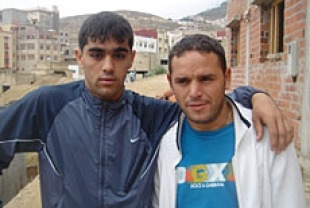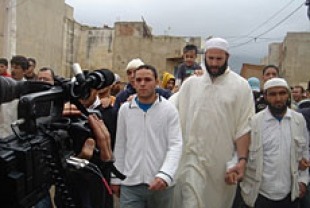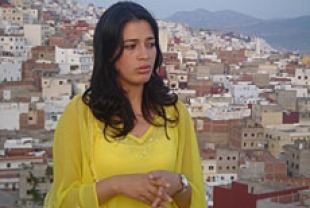In the small and impoverished Moroccan city of Tetouan, citizens struggle to earn a living and keep their hopes alive. This place was the home of the five suicide bombers who blew up the trains in Madrid in 2004. El-Khader (El-Khader Aoulasse) is a faithful Muslim whose mother has money due on her home; he's being pressued to give his dream of becoming an actor. One of his options is to become an illegal alien in Spain and to send money home to his family from a new job. But Khader is perplexed on what to do; he seeks the counsel of Mohammed (Mohammed Saadoun), a street vendor who coaches a soccer team.
Khader's best friend is Youseff (Youseff Belefki), a small time drug dealer who has spent time in prison. He has a bad wound on his leg and must use crutches to get around. Youseff decides to set up shop as a street vendor but hardly makes any money at all. When he is given the chance to work for a local wheeler dealer, he takes it, despite Khader's warning that he is headed for trouble. In all his spare time, Youseff tries to gather information about the disappearance of his brother who may have joined the war of terror against the West.
The most fortunate person in town is Rabia (Rabia Bouchfira) who has an education in law and the feisty independence to start a sewing cooperative. She dreams of becoming a fashion designer but has several men interested in marrying her. One is a boyfriend in Austria who has not proposed, and another is a local who does ask her to be his wife but they are very different in their religious and philosophical views.
Ordinary Boys is the kind of movie that should be seen by Americans who are still having a hard time understanding Muslims. Director Daniel Hernandez has created characters we can care about in their struggle to keep their souls alive in a world of limited possibilities. The actors in the film are from the Tetouan neighborhood, and the script was developed around their experiences. It makes it quite clear that Muslim youth are not all bound for militant jihad but like poor people in cities around the world, their choices are more colored by economics than religion.
Screened at the New Directors/New Films Festival in New York City, April, 2009.


